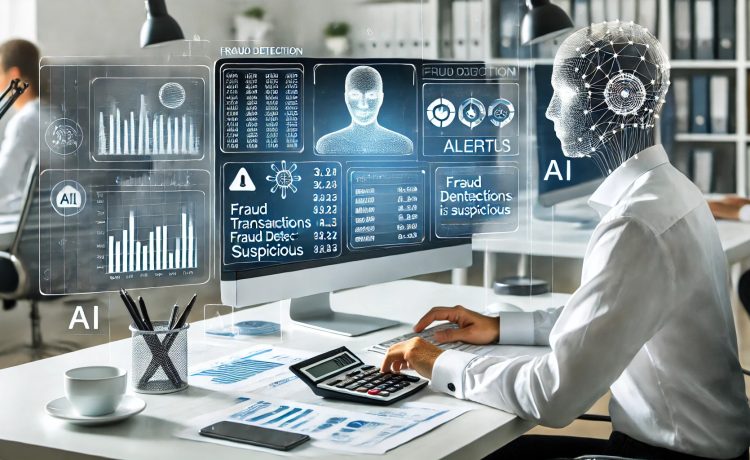In today’s digital world, artificial intelligence (AI) is everywhere—from writing emails to helping doctors diagnose patients. So, it’s no surprise that AI has made its way into the world of accounting, too. We now have smart software that can automate bookkeeping, generate reports, and even flag unusual transactions.
But here’s the question on everyone’s mind: Should we trust AI more than human accountants? Is it time to fully embrace tech, or are we moving too fast and risking too much?
Why AI in Accounting Sounds Like a Great Idea
No one enjoys spending hours dealing with spreadsheets or reconciling bank statements. That’s why so many businesses are excited about AI in accounting. It promises to make life easier.
AI-driven software can:
- Scan and sort receipts automatically
- Track spending in real-time
- Reconcile accounts without you lifting a finger
- Spot errors or duplicate entries
- Even predict future expenses based on patterns
Tools like Autocount, Xero, and Million Accounting are already using smart features to reduce human effort. Some systems can even remind you to pay bills or alert you when your cash flow’s looking tight.
For small business owners or startups who can’t afford a full-time accountant, this sounds like a dream.
But Here’s the Catch…
AI is good at one thing: following rules. It’s trained on data and programmed to do specific tasks really well. But accounting isn’t always black and white.
Sometimes, it’s about understanding the story behind the numbers. A drop in revenue might not mean failure—it could be a sign of a seasonal dip or a shift in customer behaviour. That’s where a human accountant shines.
Unlike AI, accountants:
- Ask questions
- Offer advice based on experience
- Consider context and business goals
- Understand changing regulations and apply them smartly
- Help you make financial decisions, not just track numbers
AI might tell you your expenses went up by 10%. But a good accountant will explain why—maybe you took on a new client and had to hire extra help. That insight can make all the difference.
Trust and Accountability
Let’s talk about trust. If your accountant makes a mistake, you can talk to them. You can ask what happened, get their perspective, and make sure it doesn’t happen again.
With AI? Not so easy. If software makes an error—or misses something important—you may not know until it’s too late. And who do you hold responsible? The developer? The software provider? Yourself?
There’s also the issue of data privacy. AI tools require access to your financial data. Are you sure your information is safe? Are you comfortable storing sensitive data on the cloud? These are questions worth asking.
The Middle Ground: Working With AI, Not Against It
Let’s be clear—AI isn’t the enemy here. It’s not about choosing humans or machines. It’s about finding a way for both to work together.
In fact, the smartest businesses today are doing just that.
Here’s how it can look:
- Use AI-powered business accounting software for the daily tasks: uploading receipts, generating reports, and tracking expenses.
- Then bring in a human accountant for the strategy, interpretation, and planning.
This combo allows you to move faster, save time, and still get expert guidance when you need it.
You wouldn’t rely on AI to run your entire business, right? Same goes for your finances.
What About Cost?
Sure, AI-powered accounting tools are often cheaper than hiring someone full-time. That’s especially helpful for small businesses or freelancers.
But here’s the thing: cutting costs doesn’t always mean saving money in the long run. If you miss a tax deduction, file something late, or make a wrong financial decision, the penalties or setbacks can cost more than hiring an expert in the first place.
Think of it this way—AI software can help you manage your books, but an accountant helps you understand them.
Can AI Replace Accountants One Day?
That’s the big debate. Some people think AI will eventually replace accountants entirely. Others believe human judgement will always be necessary.
Here’s a more realistic view: AI will probably replace many of the repetitive, manual tasks accountants do—but not the profession itself.
Accountants of the future might not be spending hours entering data. Instead, they’ll be focusing on financial planning, business strategy, and helping companies grow. That’s actually a win for both accountants and businesses.
Final Thoughts: So, Should You Trust AI More?
It depends on what you need.
- If you want to save time and reduce manual work, AI-powered accounting software is absolutely worth it.
- But if you’re looking for advice, strategy, or help with complex financial decisions, there’s still no replacing the human touch.
AI can process numbers, but it doesn’t run businesses. People do. And while AI can be a powerful tool, it’s best used as part of your toolkit, not your entire team.
In the end, the smartest move is to trust both your software and your accountant. Let them each do what they’re good at. That way, you’re not choosing between tech or talent—you’re getting the best of both worlds.







